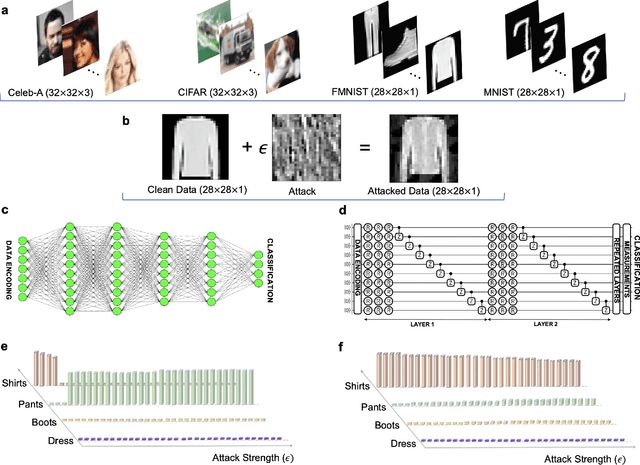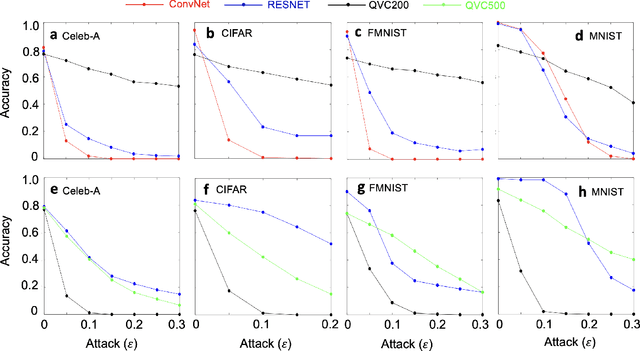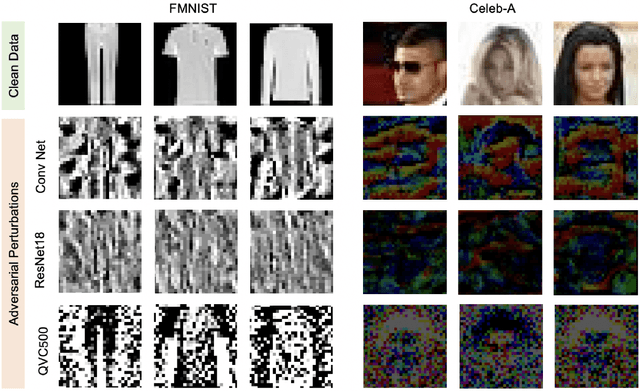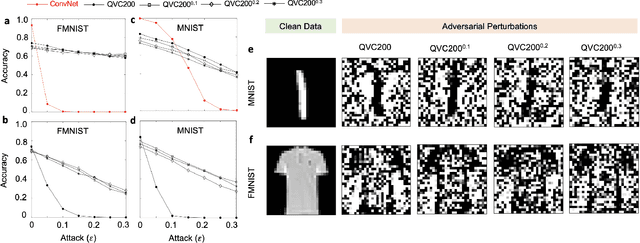Benchmarking Adversarially Robust Quantum Machine Learning at Scale
Paper and Code
Nov 23, 2022



Machine learning (ML) methods such as artificial neural networks are rapidly becoming ubiquitous in modern science, technology and industry. Despite their accuracy and sophistication, neural networks can be easily fooled by carefully designed malicious inputs known as adversarial attacks. While such vulnerabilities remain a serious challenge for classical neural networks, the extent of their existence is not fully understood in the quantum ML setting. In this work, we benchmark the robustness of quantum ML networks, such as quantum variational classifiers (QVC), at scale by performing rigorous training for both simple and complex image datasets and through a variety of high-end adversarial attacks. Our results show that QVCs offer a notably enhanced robustness against classical adversarial attacks by learning features which are not detected by the classical neural networks, indicating a possible quantum advantage for ML tasks. Contrarily, and remarkably, the converse is not true, with attacks on quantum networks also capable of deceiving classical neural networks. By combining quantum and classical network outcomes, we propose a novel adversarial attack detection technology. Traditionally quantum advantage in ML systems has been sought through increased accuracy or algorithmic speed-up, but our work has revealed the potential for a new kind of quantum advantage through superior robustness of ML models, whose practical realisation will address serious security concerns and reliability issues of ML algorithms employed in a myriad of applications including autonomous vehicles, cybersecurity, and surveillance robotic systems.
 Add to Chrome
Add to Chrome Add to Firefox
Add to Firefox Add to Edge
Add to Edge